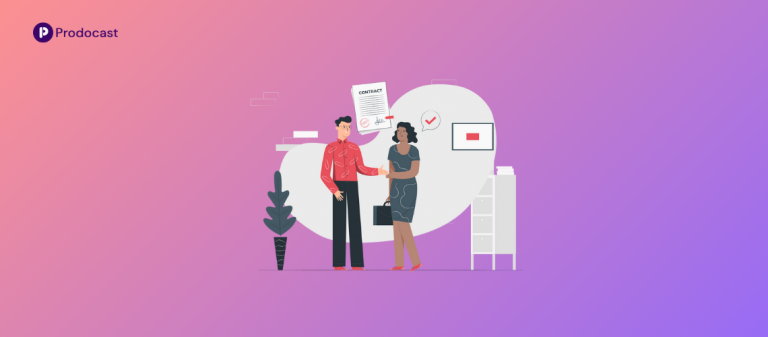In 2024, customer expectations are higher than ever—and the businesses that thrive are the ones that build strong, meaningful relationships with their clients. But how do you keep track of every customer interaction, anticipate their needs, and deliver personalized experiences at scale? The answer lies in choosing the right Customer Relationship Management (CRM) software.
With hundreds of CRM platforms out there, picking the perfect one for your business can feel like searching for a needle in a haystack. Do you need AI-powered insights, or are you simply looking for an easy way to manage your contacts and sales pipeline? What about scalability—will your CRM grow with your business? The choices are endless, but the right CRM can supercharge your marketing, streamline your sales processes, and turn customer relationships into lasting partnerships.
This guide breaks down the best CRM software for 2024, helping you navigate the sea of options to find the perfect match. Whether you’re a startup, a growing small business, or a large enterprise, you’ll find the features, pricing, and insights you need to make an informed decision. Ready to transform the way you engage with your customers? Let’s dive in!
What is CRM Software?
CRM software is a digital solution designed to help businesses manage their interactions with current and potential customers. At its core, CRM is about building relationships that drive loyalty and growth.
Key Features of CRM Software
- Contact Management: A centralized repository for storing customer and prospect information, such as contact details, interaction history, and preferences.
- Sales Pipeline Tracking: Manage leads and opportunities through various sales stages, ensuring no potential deal is overlooked.
- Marketing Automation: Automate repetitive tasks like email campaigns, social media outreach, and lead nurturing.
- Customer Support: Improve service delivery with ticket management, chatbots, and AI-powered responses.
- Analytics and Reporting: Gain insights into customer behavior, sales trends, and campaign performance.
Types of CRM Systems
- Operational CRM: Focuses on automating workflows across sales, marketing, and customer service.
- Analytical CRM: Helps businesses analyze customer data for strategic planning and decision-making.
- Collaborative CRM: Improves communication and collaboration among teams, ensuring a unified approach to customer engagement.
Benefits of CRM Software
Implementing CRM software can revolutionize how businesses manage customer relationships. Here’s a closer look at its benefits:
1. Improved Customer Experience
CRM systems enable businesses to deliver personalized experiences by consolidating customer data. Understanding a customer’s preferences, purchase history, and interactions allows companies to tailor their services, leading to greater satisfaction and loyalty.
2. Enhanced Team Collaboration
With CRM tools, all departments—sales, marketing, and customer service—can access the same data. This unified view ensures that everyone is on the same page, enabling smoother communication and better customer outcomes.
3. Automation for Efficiency
CRM software automates mundane tasks like scheduling follow-ups, sending reminders, and updating records. This frees up employees to focus on high-value activities, such as engaging with customers and closing deals.
4. Data-Driven Insights
Built-in analytics features allow businesses to track performance metrics, predict customer behavior, and identify areas for improvement. For example, sales teams can use CRM insights to refine their strategies and close deals faster.
5. Scalability
CRM solutions are designed to grow with your business. Whether you’re expanding your team, entering new markets, or scaling operations, CRM systems can adapt to meet your evolving needs.
6. Streamlined Marketing Campaigns
With features like segmentation and automated email marketing, CRMs help companies create targeted campaigns that resonate with their audience.
How to Choose the Right CRM Software
With so many options available, selecting the right CRM can feel overwhelming. Consider these factors to make an informed decision:
1. Business Size and Industry
Identify whether the CRM caters to small businesses, enterprises, or niche industries. Some tools are better suited for startups, while others offer enterprise-grade features.
2. Core Features
Evaluate your business needs. Do you need marketing automation? Advanced analytics? Mobile accessibility? Make a checklist of must-have features.
3. Ease of Use
A CRM should be user-friendly. Complex tools with a steep learning curve may frustrate your team, lowering adoption rates.
4. Integration Capabilities
Ensure the CRM integrates with tools you already use, such as email platforms, e-commerce systems, and accounting software.
5. Customization and Scalability
Choose a CRM that can grow with your business and be customized to meet unique requirements.
6. Pricing
Consider both upfront and long-term costs. Compare subscription fees, user licenses, and optional add-ons.
7. Customer Support
Reliable support and resources like tutorials, user communities, and dedicated account managers are essential for a seamless experience.
Top 10 CRM Software for 2024
Here’s our curated list of the best CRM solutions for 2024, each with a detailed description of features, pricing, and suitability:
1. Salesforce
Salesforce is often regarded as the gold standard for CRM software. With its comprehensive features and scalability, it caters to businesses of all sizes, particularly large enterprises.
Key Features:
- AI-driven Insights: Salesforce uses Einstein Analytics to provide actionable insights, automate processes, and predict customer behavior.
- Customization: It offers unparalleled customization options, allowing businesses to tailor dashboards, workflows, and reports to their specific needs.
- Robust Integrations: With thousands of third-party integrations through the AppExchange, Salesforce can seamlessly work with existing business tools.
- Mobile-Friendly: Salesforce’s mobile app ensures that businesses can access customer data, manage leads, and track performance on the go.
Best For: Large enterprises needing advanced analytics, customization, and scalability.
Pricing: Starts at $25 per user/month.
Salesforce’s extensive features and scalability make it the go-to CRM for businesses with complex needs, offering an AI-powered interface that makes data-driven decisions easier. Though the platform may have a steeper learning curve, its adaptability and growth potential make it well worth the investment.
2. HubSpot CRM
HubSpot CRM has gained immense popularity, particularly among startups and small to medium-sized businesses, thanks to its easy-to-use interface and extensive free features.
Key Features:
- Free Plan: HubSpot offers a robust free version that includes contact management, lead tracking, email integration, and more.
- Marketing Automation: Integrated tools for automated email campaigns, lead nurturing, and audience segmentation.
- Seamless Integrations: Easily integrates with HubSpot’s marketing, sales, and service hubs, as well as third-party tools.
- User-Friendly: Known for its intuitive design, HubSpot CRM requires minimal onboarding, making it easy for teams to adopt.
Best For: Startups and SMBs looking for an affordable and simple CRM.
Pricing: Free plan; paid plans start at $50/month.
HubSpot CRM stands out for its simplicity, allowing businesses to set up and start using it almost immediately. With an extensive range of automation and customization features, it’s perfect for growing businesses that need a flexible CRM without the steep learning curve.
3. Zoho CRM
Zoho CRM is an affordable solution that offers powerful sales automation and AI features, making it a great choice for small to mid-sized businesses.
Key Features:
- AI-powered Insights: Uses Zia, an AI assistant, to provide recommendations, automate tasks, and predict trends.
- Customizable Workflows: Allows businesses to create workflows, automate tasks, and generate detailed reports tailored to specific needs.
- Multi-Channel Communication: Integrates social media, email, chat, and phone support into a single platform.
- Affordable: Offers competitive pricing for small businesses without sacrificing features.
Best For: Small to mid-sized businesses that need a cost-effective and customizable CRM.
Pricing: Starts at $14 per user/month.
Zoho CRM provides robust features at an affordable price point, making it a fantastic option for small and growing businesses. With customizable workflows, AI-powered recommendations, and multi-channel communication tools, Zoho CRM helps businesses stay organized and connected with customers.
4. Microsoft Dynamics 365
Microsoft Dynamics 365 is a comprehensive enterprise-level CRM solution, seamlessly integrating with other Microsoft tools like Office 365 and Outlook. It offers robust features for sales, marketing, customer service, and field service management.
Key Features:
- AI-Driven Sales Insights: Dynamics 365 uses AI to provide predictive insights into sales opportunities, customer behaviors, and market trends.
- Customization: Highly customizable workflows, dashboards, and reports tailored to your business needs.
- Integration with Microsoft Tools: Deep integration with other Microsoft tools, such as Teams, Outlook, and SharePoint, makes it an ideal choice for businesses already within the Microsoft ecosystem.
- Comprehensive Customer Engagement: Supports engagement across multiple channels like email, chat, and social media.
Best For: Large enterprises already using Microsoft tools and seeking an all-in-one solution.
Pricing: Starts at $65 per user/month.
Microsoft Dynamics 365 excels in offering a complete suite of CRM tools that go beyond customer relationship management, enabling businesses to manage both sales and operational processes in one platform. It’s particularly valuable for large enterprises with complex workflows and a heavy reliance on Microsoft products.
5. Pipedrive
Pipedrive is an intuitive CRM solution designed specifically for sales teams. It’s ideal for businesses looking to streamline their sales processes with a straightforward, user-friendly interface.
Key Features:
- Customizable Pipelines: Pipedrive offers a visual interface to easily manage and track deals, with customizable pipelines.
- Sales Automation: Automates repetitive tasks like follow-ups, emails, and scheduling, freeing up more time for sales teams.
- Lead Management: Helps track leads through different stages of the sales funnel with automated reminders and detailed reporting.
- Integrations: Pipedrive integrates with over 150 apps, including Google Workspace, Slack, and Zapier.
Best For: Sales-focused teams looking for a simple, visual CRM to manage deals.
Pricing: Starts at $14.90 per user/month.
Pipedrive is a simple yet powerful CRM that focuses on sales pipeline management. With customizable pipelines, robust reporting features, and easy-to-use automation tools, Pipedrive ensures that sales teams can manage leads and close deals efficiently.
6. Monday Sales CRM
Monday Sales CRM is part of the broader Monday.com platform, which combines CRM capabilities with project management tools. It’s a flexible solution ideal for businesses looking to streamline their sales processes while managing projects.
Key Features:
- Customizable Workflows: Create tailored workflows, automations, and reports to suit your business needs.
- Lead and Deal Tracking: Monitor the status of leads and deals in a visual format, providing complete transparency across teams.
- Collaboration Features: Facilitate team collaboration by sharing notes, assigning tasks, and tracking communication history.
- Integration with Monday.com: Seamlessly integrates with Monday.com’s project management features, making it ideal for businesses that need both CRM and project management tools.
Best For: Teams looking for a CRM that integrates seamlessly with project management tools.
Pricing: Starts at $10 per user/month.
Monday Sales CRM’s combination of CRM and project management features makes it a unique solution for businesses that need flexibility. With its customizable workflows and deep integrations, it’s ideal for teams that want to track both customer relationships and projects in one platform.
7. Freshworks CRM
Freshworks CRM is a comprehensive solution for small to mid-sized businesses. It offers a mix of AI-powered sales and marketing tools with customer service capabilities, providing an all-in-one platform for managing customer relationships.
Key Features:
- AI-Powered Assistant (Freddy): Freddy helps automate repetitive tasks, track deals, and provide sales insights using AI.
- Multi-Channel Communication: Supports email, chat, social media, and phone communication, making it easier to engage with customers.
- Lead Scoring & Automation: Automates lead scoring, follow-ups, and reminders to ensure no opportunities are missed.
- Reporting: Offers in-depth reporting features to track sales performance, customer engagement, and more.
Best For: SMBs seeking a simple CRM with AI-driven features and multi-channel support.
Pricing: Starts at $15 per user/month.
Freshworks CRM stands out with its AI-powered tools, helping businesses automate tasks and provide personalized customer experiences. It’s a great choice for businesses looking for an easy-to-use CRM that enhances both sales and customer service capabilities.
8. Insightly
Insightly is a CRM and project management platform that allows businesses to manage customer relationships alongside ongoing projects, making it ideal for service-oriented businesses.
Key Features:
- Project Management Tools: Link customer relationships to ongoing projects and manage tasks, deadlines, and communications all in one place.
- Customizable Dashboards: Track sales and project progress with customizable dashboards and detailed reports.
- Sales Pipeline Management: Manage and track leads, deals, and opportunities through a customizable sales pipeline.
- Third-Party Integrations: Integrates with popular tools like Google Workspace, Microsoft Office, and more.
Best For: Service-oriented businesses needing both CRM and project management features.
Pricing: Starts at $29 per user/month.
Insightly combines CRM and project management features in a single platform, making it perfect for businesses that need to track both client relationships and project progress. Its seamless integration with Google and Microsoft tools makes it easy to incorporate into your existing business processes.
9. Nimble
Nimble is a social CRM that integrates social media with traditional CRM features. It’s designed to help businesses manage customer relationships through various channels, especially for businesses focused on social engagement.
Key Features:
- Social Media Integrations: Nimble pulls in data from social media channels like LinkedIn, Twitter, and Facebook to provide a comprehensive view of customer interactions.
- Contact Management: Automatically updates contact details and engagement history for all your clients.
- Email Tracking: Track email opens, clicks, and responses to ensure effective follow-up.
- Task Management: Schedule follow-ups and tasks to stay on top of client needs.
Best For: Startups and solopreneurs who focus on relationship-building via social media.
Pricing: Starts at $19 per user/month.
Nimble’s unique approach to social CRM allows businesses to connect and manage relationships through social media channels. It’s perfect for businesses that rely heavily on social engagement and want a simple yet powerful CRM.
10. SugarCRM
SugarCRM offers a highly customizable and scalable solution for mid-sized and large enterprises. It’s known for its flexibility, allowing businesses to tailor the platform to their specific needs.
Key Features:
- Customization: SugarCRM’s open-source nature allows businesses to fully customize workflows, dashboards, and reports.
- AI-Powered Analytics: Provides insights into customer data, helping businesses predict trends and make informed decisions.
- Automation Tools: Automate routine tasks and processes to reduce manual work and improve efficiency.
- Advanced Reporting: Generate custom reports to analyze sales performance, customer satisfaction, and more.
Best For: Mid-sized and large organizations needing a highly customizable CRM.
Pricing: Starts at $49 per user/month.
SugarCRM’s flexibility and scalability make it ideal for businesses with specific customization needs. Its advanced analytics and automation features empower businesses to make data-driven decisions and streamline their operations.
Comparison Table of the Top CRMs
| CRM Software | Key Features | Best For | Pricing |
| Salesforce | – AI-driven insights
– Customizable dashboards and reports – Robust integrations – Mobile app |
Large enterprises needing advanced features and scalability | Starts at $25/user/month |
| HubSpot CRM | – Free plan with basic features
– Marketing automation – Seamless integrations with other HubSpot tools – User-friendly interface |
Startups and SMBs looking for a simple, free CRM | Free plan; Paid plans start at $50/month |
| Zoho CRM | – AI-powered insights (Zia)
– Customizable workflows – Multi-channel communication – Affordable pricing |
Small to mid-sized businesses looking for cost-effective CRM | Starts at $14/user/month |
| Microsoft Dynamics 365 | – AI-driven sales insights
– Deep integration with Microsoft tools – Customizable workflows and reports – Comprehensive engagement tools |
Large enterprises needing an all-in-one solution and using Microsoft tools | Starts at $65/user/month |
| Pipedrive | – Customizable sales pipelines
– Sales automation – Lead management – Integrations with over 150 apps |
Sales-focused teams looking for a visual CRM | Starts at $14.90/user/month |
| Monday Sales CRM | – Customizable workflows and automations
– Sales and project management integration – Visual lead tracking – Team collaboration features |
Teams needing both CRM and project management tools | Starts at $10/user/month |
| Freshworks CRM | – AI-powered assistant (Freddy)
– Multi-channel support (email, chat, social media) – Lead scoring and automation – In-depth reporting |
SMBs needing an AI-driven CRM with multi-channel support | Starts at $15/user/month |
| Insightly | – CRM and project management integration
– Customizable dashboards and reports – Sales pipeline management – Third-party integrations |
Service-oriented businesses that need both CRM and project management | Starts at $29/user/month |
| Nimble | – Social media integrations (LinkedIn, Twitter, etc.)
– Contact management – Email tracking – Task management |
Startups and solopreneurs focused on social engagement | Starts at $19/user/month |
| SugarCRM | – Highly customizable
– AI-powered analytics – Sales and task automation – Advanced reporting |
Mid-sized and large organizations needing a customizable solution | Starts at $49/user/month |
Trends Shaping CRM Software in 2024
1. AI Integration
Artificial intelligence is transforming CRM functionality, enabling predictive analytics, intelligent chatbots, and tailored recommendations. Tools like Salesforce Einstein and HubSpot’s AI features are leading this innovation.
2. Mobile-First Solutions
With remote work becoming the norm, mobile CRM apps are a must-have, allowing teams to access data and update pipelines on the go.
3. Industry-Specific CRMs
Tailored CRM solutions for industries like healthcare, real estate, and education are gaining traction, providing features that address specific pain points.
4. Data Privacy Compliance
Compliance with GDPR, CCPA, and other data protection regulations is critical. CRMs now prioritize secure data storage and transparent customer consent management.
5. Conversational AI
Chatbots powered by natural language processing (NLP) enable real-time customer interactions, improving service efficiency..
Conclusion
Choosing the right CRM software is a pivotal decision for any business aiming to build stronger customer relationships, streamline processes, and drive growth in 2024. Whether you’re looking for advanced automation, in-depth analytics, or a user-friendly interface, the CRM options listed in this guide cater to various business needs and budgets.
By carefully evaluating the key features, pricing, and scalability of each platform, you can select the CRM that aligns with your unique goals and challenges. Remember, the right CRM isn’t just a tool—it’s an investment in your business’s future success.
As technology continues to evolve, the CRM software that works best for your business today may grow alongside you tomorrow, empowering you to deliver exceptional customer experiences and outpace the competition. Take your time, explore your options, and make the choice that will help your business thrive for years to come.
Bonus Tip: Promote Your Software on Prodocast
If you’re a software developer or vendor looking to expand your product’s reach, listing it on Prodocast is an excellent way to gain visibility. Prodocast allows you to list your software products for free, providing a platform to connect with potential customers and showcase your offerings to a wider audience. By leveraging digital channels and utilizing platforms like Prodocast, you can maximize your product marketing efforts and drive more traffic to your software.
Follow us on Linkedin for more product marketing insights




